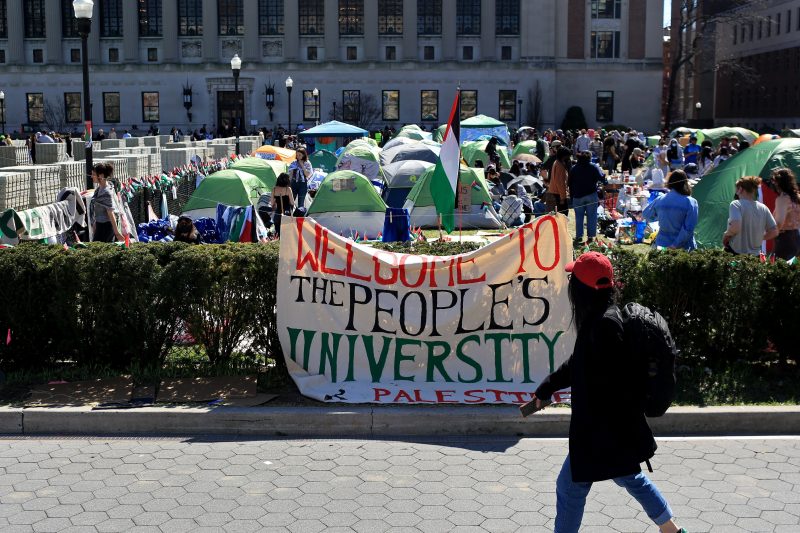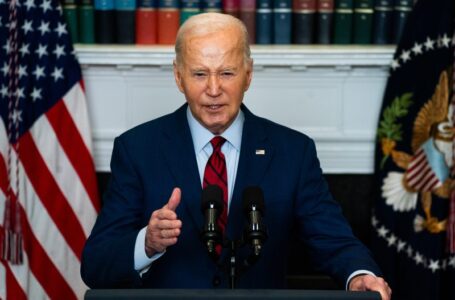The anti-college subtext to the right-wing response to Gaza protests


In early December, the House Education Committee held a hearing considering antisemitic incidents on college campuses. This was the hearing in which the presidents of Harvard University and the University of Pennsylvania offered fumbling responses to a question about antisemitic rhetoric, earning national headlines.
That result was a bonanza for the Republicans running the hearing and for Rep. Elise Stefanik (R-N.Y.) personally. As Politico wrote at the time, the situation helped drive a wedge between factions of the political left — widening a divide still obvious in Democratic politics.
But this was a fortunate (if not lucky) effect of the hearing. It was intended not to catch university presidents making tone-deaf comments about antisemitism but, instead, to present those presidents as out of touch and hopelessly liberal, echoing a line of argument that’s become increasingly common on the right.
Consider how committee Chair Virginia Foxx (R-N.C.) described the reason for the hearing as it began.
“After the events of the past two months,” Foxx said, “it’s clear that rabid antisemitism [and] the university are two ideas that cannot be cleaved from one another. A prime example of this ideology at work is at Harvard, where classes are taught such as DP 385, ‘Race and racism in the making of the United States as a global power.’”
“The Harvard Global Health Institute hosts seminars such as, quote, ‘Scientific Racism and Anti Racism History and recent perspectives,’” she continued. “Even the Harvard Divinity School has a page devoted to, quote, ‘social and racial justice.’ Harvard also, not coincidentally, but causally, was ground zero for antisemitism following Oct. 7” — that is, the Hamas attack on Israel.
The point was to use incidents of antisemitism as a criticism of elite institutions’ approach to education, in keeping with Republican rhetoric on the subject. As the debate over colleges has shifted to student protests in opposition to Israel’s military response to Oct. 7, the idea that colleges are incubators for left-wing ideology remains a subtext to the response on the right.
This is a common belief on the right, though not one substantiated by available evidence. It is in keeping with the idea that those who ascribe to liberal politics were brainwashed somehow, by someone — in this case, by liberal professors.
This is a relatively recent shift. Gallup data shows that, in 2015, most Republicans still indicated they had at least some confidence in higher education. By last year, though, only 1 in 5 did.
Over that same period, the Pew Research Center measured a sharp shift on the right against colleges, with the number of Republicans (and Republican-leaning independents) saying that colleges had a negative effect on the country jumping from 4 in 10 in 2015 to 6 in 10 in 2017.
One thing that happened over that period was the election of Donald Trump as president, an election that was often framed explicitly as pitting the interests of non-college-educated Americans against those with college degrees.
By 2016, Pew data indicates, Americans without a college degree were slightly more likely to identify as Republicans (or Republican-leaning independents) than Democrats (or Democratic leaners), a shift from eight years before when they were more likely to identify as Democrats/leaners by double digits. White Americans without a college degree were more than 20 points more likely to identify as Republicans/leaners in 2016 than as Democrats/leaners.
In Gallup’s assessment, those without a degree were more likely to indicate having little confidence in higher education.
Last year, YouGov asked Americans if they thought college professors or students had “too much freedom to speak their minds” in class. Among Republicans, just under half said professors had too much freedom in that way.
This idea that colleges and college students — particularly at Ivy League schools — are untrustworthy or harmful to the country is pervasive. It’s impossible to fully separate that sensibility on the right from the fervor with which Republican commentators and politicians, in particular, are expressing outrage at what’s unfolding at those colleges. (And, in the case of Columbia University, just off campus.) There are any number of good-faith criticisms at play and abundant sincere concern about the welfare of Jewish students and members of the Jewish community. But there’s still that subtext.
Columbia’s president, Nemat Shafik, appeared on Capitol Hill last week for another Education Committee hearing with the same focus as the one in December. The appearance didn’t result in the sort of outcry as the one featuring the three university leaders who testified several months ago. But it did feature Stefanik pressuring Shafik to respond to the comments of a specific professor, knocking Shafik on her heels.
By this week, Stefanik was calling for Shafik’s resignation — not because of that professor but because of the protests on campus.
When the president of the University of Pennsylvania resigned after the December hearing featuring the three university leaders, Stefanik celebrated her victory over the elites.
“One down,” she wrote on social media. “Two to go.” The “two” included the president of Harvard, the school Stefanik attended, who would succumb to an unrelated right-wing pressure campaign weeks later.
One gets the feeling that, for Stefanik and many others on the right, the reason for ousting the leaders of these universities is less important than their ousters. The target is, in part, higher education itself.











